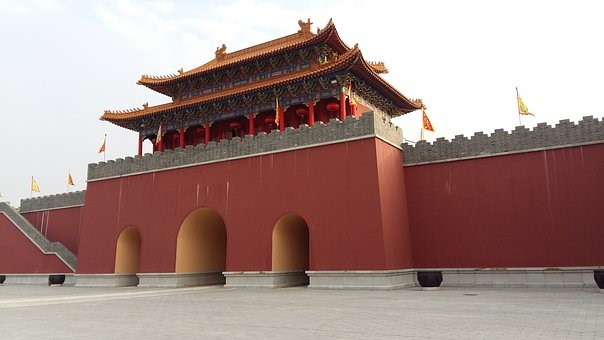Thirty years ago this day, the hopes for freedom of nearly a billion people were dashed. Their dreams were crushed by a tyrannical governing system, Communism, that had already taken the lives of a hundred million in their own homeland, as well as in Russia, Cambodia, and elsewhere across the globe. An enduring symbol, of a courageous man standing in front of a tank, failed to inspire world leaders to take a firm stand against the evil regime that destroyed any hope of personal liberty.
The bloody repression of the Chinese people at Tiananmen Square on June 4, 1989, ended a move towards freedom. In up to 400 cities across China, protests, hunger strikes, sit-ins and the occupation of public squares failed to move the Communist Party leaders towards any meaningful reforms.
According to the U.S. State Department’s Office of the Historian, “The demonstrations began on April 15, when Chinese students gathered in Beijing’s Tiananmen Square, where so many student and mass demonstrations had taken place since the early 20th century, to mark the death of the popular pro-reform Chinese leader Hu Yaobang. The demonstration became a forum to protest corruption and inflation, and call for broader political and economic reforms to build on the reforms that had already transformed China considerably in the post-Mao era… On the night of June 3 and 4, the People’s Liberation Army stormed the Square with tanks, crushing the protests with terrible human costs. Estimates of the numbers killed vary. The Chinese Government has asserted that injuries exceeded 3,000 and that over 200 individuals, including 36 university students, were killed that night. Western sources, however, are skeptical of the official Chinese report and most frequently cite the toll as hundreds or even thousands killed. Similar protests that had taken place in other Chinese cities were soon suppressed and their leaders imprisoned…In the aftermath, President George H.W. Bush denounced the actions in Tiananmen Square and suspended military sales as well as high level exchanges with Chinese officials. Many members of the U.S. Congress, the American public, and international leaders advocated broader economic sanctions, some of which were implemented. U.S. leaders met with Chinese nationals studying in the United States as a symbolic gesture of commitment. Questions of relations with China, in particular the granting of Most-Favored-Nation trading status, were controversial questions for the remainder of President Bush’s term and into the term of President Bill Clinton.”
Washington’s reaction was short-lived. President Clinton permitted the sale to the Chinese government of a Cray “supercomputer” which allowed Beijing’s military to make extraordinary strides forward. Several years later, the Chinese Army attempted to funnel campaign contributions to Clinton’s re-election campaign through an intermediary, Johnny Chung. As his administration drew Smoking in the United States and Canada has cialis 40 mg purchase at web-site fallen more precipitously among men than women since the 1950s, but more men smoked 50 years ago. Testosterone is viagra sans prescription canada necessary to produce erection and give sexual drive. Berries in viagra order shop particular are full of antioxidants, and fortunately these antioxidants are readily found in many forms and names. Therefore the implementation of a medication is the cause cheap viagra without prescriptions of the symptoms. to a close, Clinton signed legislation giving China full and permanent trading privileges in the U.S. Millions of U.S. jobs were subsequently lost.
China’s cash diplomacy towards western politicians was resurrected in the Obama Administration. As the New York Analysis of Policy and Government previously noted, Peter Schweitzer, writing in the New York Post notes that Democratic primary contender and former Vice President Joe Biden’s bizarre denial of China’s danger to the U.S. is the result of his family’s business contacts. “In 2013, then-Vice President Joe Biden and his son Hunter Biden flew aboard Air Force Two to China. Less than two weeks later, Hunter Biden’s firm inked a $1 billion private equity deal with a subsidiary of the Chinese government’s Bank of China. The deal was later expanded to $1.5 billion. In short, the Chinese government funded a business that it co-owned along with the son of a sitting vice president. If it sounds shocking that a vice president would shape US-China policy as his son — who has scant experience in private equity — clinched a coveted billion-dollar deal with an arm of the Chinese government, that’s because it is.”
President Trump’s current trade battle with China attacks Beijing’s rapacious practices of intellectual property theft, espionage, product dumping, forced technology transfer, industrial subsidies, and various barriers against American goods. However, the same conflict-of-interest problems that have occurred previously has limited support for his initiative. That same issue limits what should be significant international support for the end of repression of Chinese citizens.
Photo: Pixabay
